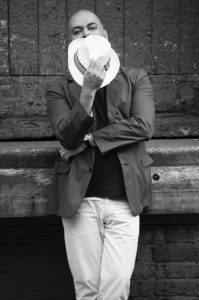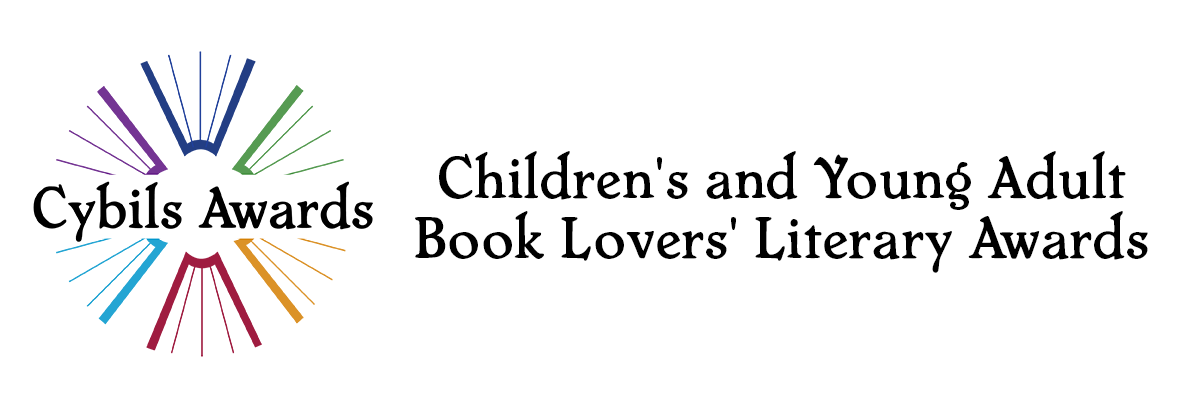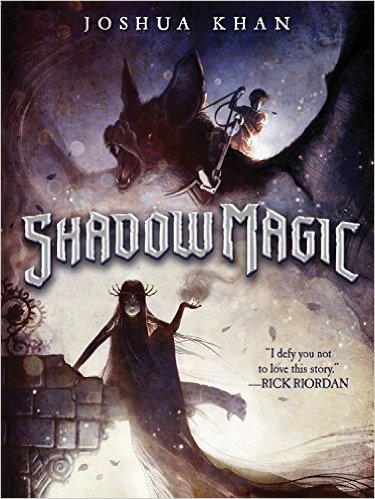Lily is a strong heroine, both determined and intelligent, yet in Shadow Magic both the political power she ostensibly has, and the magical power that’s forbidden to women which she’s beginning to realize she has lots of, are not yet fully hers to wield. I assume that as the series progress, she will gain more actual power….Was it hard to hold Lily in check in this first book? And were there specific characters (fictional or otherwise) that influenced your creation of innately powerful but socially constrained Lily?
Lily’s story very specifically came out of a real life heroine, Malala Yousafzai, the Pakistani girl who the Taliban shot because she was trying to promote education for girls. Lily wants the power to decide her future. In her world that power comes from magic. Millions of girls in our world want to decide their own futures. And the power to do that comes through education. As a Muslim and father of two girls this matters a lot, personally.
The whole idea of House Shadow is based on the Middle-East. Lily’s dad’s name is Arabic for the devil. Her mother’s the great villainess of the Old Testament and Lily is Lilith, a Hebrew demoness. The view people have of House Shadow mimics the fear the West has of East, and specifically Islam. For that reason all of House Solar is named after archangels.
Lily’s learning of magic is my metaphor of conquering the unknown, the ignorance people have. I find it perverse so much of the world would deny half its population a chance to help, by becoming teachers, doctors, engineers and simply better-educated mothers.
Constraining Lily is not so much about learning magic, which is knowledge of only one sort, but wisdom, quite a different knowledge. DREAM MAGIC, the sequel, investigates the consequences of using magic without restraint. There is a literal and figurative backlash. She cannot handle the power she wields, and there are those close to her that resent her break with tradition.
The wisdom is very old. Power corrupts. Absolute power corrupts absolutely.
Can we solve our problems by the simple use of our power, whatever form it happens to take? Just because we can do a thing, does not mean we should.
So, I did not need to think up ways to hold her in check. In SHADOW MAGIC Lily learns of her potential. In DREAM MAGIC she start to explore the limits of her magic, and the dangers that lie at the borders of her wisdom.
The world of Shadow Magic seems a pretty big and complicated place, with its six elemental magical kingdoms. We only see a small part of this world in the first book, with more to come in the second and third. When you were working on Shadow Magic, and later on its sequels, did you take the time to work out all the details (geographic, cultural, magical, political) in advance, or did you explore as you went along with the story? Were there things that you “discovered” as you wrote that surprised you?
It took me two years to write SHADOW MAGIC, and a fair amount of that included the world-building. Not so much the maps but its history, its legends and the beliefs of the people from the different kingdoms. The key to all this was the Six Princes. These were brothers, and the first six sorcerers. Each house is descended from one or the other. I’ve done a rough outline for each, with lesser houses and a history.
But, of course, each descendent thinks it’s more important than the rest. Lily, Thorn and K’leef have such an argument, which was my playful way of them quibbling about whose god is more powerful?
Some houses were easier to establish than others. House Djinn was fire as djinns are (out of Arabic lore) beings of smokeless fire. Herne’s an ancient English forest deity, so again a pretty easy fix. The fate of House Typhoon was unexpected. As I was developing them it dawned on me that they had been overthrown. Real magic is fading from the world. At some point a house will run out of sorcerers, and then what? How would the other houses react, having seen one destroyed? And what would replace it? So the kingdom of Lu Feng, Land of the Endless Wind, is now governed by the Feathered Council.
I’m trying not to pin down too much detail too early, so as not to trap myself into a corner but, book by book, the world is revealed, not just to the reader, but to me too!
With the follow-up question– though you were an engineer by training, you also brought role-playing game experience to the writing process. Clearly the latter is a help in creating a fantasy world (at least I assume so, but would you recommend it to young would-be authors?), but is being a mechanical engineer at all useful?
More than the roleplaying, what helped with the world building was travelling. How better to learn about making a world than by going out and exploring yours? I lived in Hong Kong, and saw the extravagant funeral rituals where paper money and goods are burned as offerings to the dead. I’ve seen cremations on the ghats of the Ganges and the vast necropolis under Paris.
There have been castles and palaces that have all fed into the building of Castle Gloom (I once was in the catacombs of a maharajah’s old palace where I realized the entire ceiling was filled with bats) and spent time in the Middle-East watching burka-clad women crossing the sands.
The world’s a big, magical place. There are plenty of wonderful things to see, and amazing people to meet. Fantasy, as a genre, allows you to dwell on the big topics, the larger canvas as it were. The roleplaying helped with the storytelling, that’s for sure. That’s how I learnt pacing. There’s a rhythm to a story, peaks and troughs.
The engineering was helpful in a more practical sense. Writing a book is a long term project. Like putting up a building. How do you do it? Some writers just launch in and write themselves out at the end. They say that if you don’t know how the story’s going to end, then how can the reader?
Me? I believe is saving the best for last. Every step of the story much lead to a wholly satisfying ending, where all the twists and turns, strange as they may have seemed at the time, make sense and the ending is the most satisfying, cathartic one you could have hoped for. So I construct my stories. I build a frame, make sure the foundations are firm, stable and deep. Then the basic structure goes up, the steel, the bones of the tale as it were. There can be no gaping (plot) holes are weak connections that could bring the entire tale down.
Then from that I build outwards, easy because I’ve explored and developed every corner and niche of my structure. Sure, there will be design changes along the way, because I thought up something better, but there’s a momentum, a purpose to the story that (I think) is clearer and more powerful because you built straight and true.
The shadow magic that gives the book is title is “dark”; in as much as it involves the dead. But it comes across in the book as no more good or bad than the people wielding the magic. Were there any particular inspirations behind this attitude to necromancy?
 People are people. No one is defined by their race, or religion or their sex. So it is with magic. How you use the gifts you have matter most. Death is the great unknown, it is our final, inescapable fear. I loved the idea of a girl who not only has no fear of it, but celebrates it. Lily and the Shadows honour the dead.
People are people. No one is defined by their race, or religion or their sex. So it is with magic. How you use the gifts you have matter most. Death is the great unknown, it is our final, inescapable fear. I loved the idea of a girl who not only has no fear of it, but celebrates it. Lily and the Shadows honour the dead.
In summary, SHADOW MAGIC IS about conquering the unknown, the darkness we face in ourselves. It’s about the wisdom we gain when we step out of our comfort zone, face our fears, and make them part of us, for that is how we grow. That, if anything, is the only wisdom I’ve truly learnt.
Not to give in and build walls, hoping to keep our fear outside. They never work as the fear, in the end, is within us.
So while Lily is a major character in the series, Thorn is equally significant. He is our ‘everyman’ viewpoint. He’s the one who grows to admire and use the darkness he was initially afraid of. He literally conquers the darkness, in the form of Hades, the giant vampire bat. Was there any creature more associated with the dark and frightful things than a bat? But Thorn make it his closest, best and most powerful ally. As much as I adore Lily, there is much I love about Thorn.
Book 2, Dream Magic, comes out this spring; will there be a third book? Are they getting easier to write, or does each bring its own special challenges? Do you have a favorite?
Yes, BURNING MAGIC is on its way! I’ve been very lucky with Disney-Hyperion, my publisher. They’ve supported the books all the way. DREAM MAGIC takes place within Lily’s kingdom, I thought there were still a few stories I wanted to explore in Gehenna before moving away. But I introduce the Sultanate of Fire in the first book (through the character of K’leef) and it was always my intention for that to be the next stop.
This also goes back to the very first question. Why are women banned from using magic? You find the answer to that in BURNING MAGIC and the whole of Lily’s world is then turned upside down. BURNING MAGIC was easiest to write, but that’s because of the groundwork having already been lain. I’d been pondering book 3 even while writing books 1 and 2 so when I was given the thumbs up to go ahead and do it, there was no stopping me!
Oh, do I have a favourite? Sure. That’ll be (if all goes well) Book 4…
And to close with a very minor question– if Lily wanted to wear bright colors and lighten up her castle in general, which she might very well never want to do, would she be able to get away with it?
Hmm, let me ask you a question. How would you feel about changing your flag? That’s how Lily feels about black. If she wore white, what does that make her? A subject of House Solar? Or if she wore red? Is she then merely a citizen of the Sultanate of Fire?
Lily’s belongs to Gehenna. She and the kingdom are one and the same. Her family founded this kingdom. I don’t think it’s really ever crossed her mind to wear anything other than the colour she wears. I suspect if you dressed her in any other colour it would turn black by the end of the day…
Thank you, Joshua, for your time!

